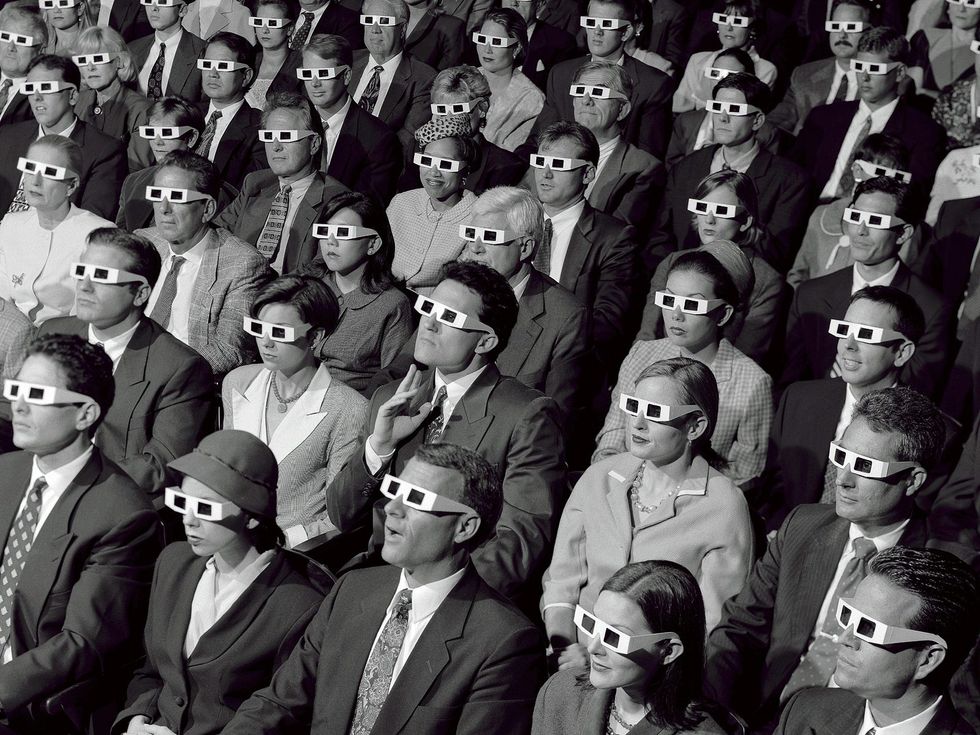People sometimes ask me, upon hearing that I am a dietetics major, "What do I need to be eating?" This question always catches me off guard. I suppose it shouldn't, I mean it's a basic question, and the answer is pretty simple really - food.
This answer, I'm sure, is not what they're looking for. They already know what food is, and given their live state, I'd have to assume they have already been eating food. Perhaps what they are looking for is that quick tip, like "Kale. Eat 1 cup of kale a day - research has proven it is the cure to all human health problems, people just aren't eating enough kale." I never tell them this, though, because it's simply not true. Perhaps they are just making small talk, but my initial response is - basically - that I want to get to know every detail of their lives. That sounds ridiculous, and it probably is, but let me explain. Research is conducted to lead to the general nutrition recommendations we have today, but I think even these are not as simple as they appear. Every body is different, but even for the vast majority without, say, dietary restrictions, the ways to implement those guidelines are different for everybody. If following dietary guidelines was in fact as simple as it appears, or as simple as fastening a seatbelt, do you think we would still have the obesity rates we do?
Would there still be column after column of dieting advice? Would we still have eating disorders or other nutrition-related diseases? It isn't that simple, because eating is so intertwined with the details of each individual's life, and no life is exactly the same.
Eating styles can be vastly different. Some can seemingly eat whatever they want and not gain a pound, and some eat well-balanced in reasonable portions and still can't seem to shake the weight. Some snack in between meals, and some can only eat a little bit at each meal. There are the ketogenic and paleo and vegetarian and low-fat and organic and vegan and FODMAP and renal diets (not all at the same time, I don't think all of those could co-exist…) Next comes lifestyle influences - there are the shakers and movers that walk or bike everywhere, then run 5 miles, then do cross-fit the next day. Some work two jobs and do not have the energy to work out when they come home. Some live with disabilities or chronic pain that prevent them from being able to move much at all. There are also the training athletes. Some try to get in one meal together as a family, some eat at work or school, some with friends, and some with clients. Some people live and eat alone. The busyness, budget, cooking skills, and living situation of an individual may determine how often an individual turns to prepackaged - if not junk - food, or fast food.
Perhaps serving as the filter between the context of lifestyle and how we eat is our emotions. People eat because they are hungry or because they need to live, but I think food has such a rich emotional aspect as well, one that I believe plays no small part in some of the ways we eat today. Your body can tell you "I'm hungry," but your emotions can tell you, "Let's not eat right now." It can be out of anger, worry, or sadness. Likewise, your body can tell you "I'm not too hungry right now," but your emotions may say, "Eat some more of this. It will make you feel better." Sometimes using food as emotional therapy can be a good thing. Taking your friend out to grab some ice cream and talk about problems can be a very therapeutic and much-needed session. Looking forward to that lunch break can be a great way to refuel and take a break from the stress of work. It is when you find yourself regularly turning to food for comfort, eating beyond what you are comfortable with, or refusing to eat in response to strong emotions that may be leading to unhealthful behaviors. You can have all the nutritional knowledge in the world, but unless you take a good listen to what your emotions AND your body are saying about your eating, you may not have much success truly eating in a healthy balance.
Below is a list of statements that may lead to eating out of emotion rather than your body's cues. This isn't based on any specific research study or magical formula; it is more of something I just created to show examples of what factors can influence emotional eating. The more statements that apply to you, the likelier you may be to over- or under-eat.
- I live alone.
- I have health concerns.
- I have financial concerns.
- There is occasionally tension or discord in my family.
- I feel like I sometimes don't have control of my life.
- I'm dissatisfied with the way I look.
- I sometimes feel guilty after I eat.
- I'm worried about a family member.
- I have an upcoming life change.
- I worry about the future.
- I don't have enough time to do the things I need to do.
- Sometimes I feel like I really don't have any friends.
- I have doubts about me and my partner's relationship.
- I have children.
- I'm looking for a job.
- I'm in school.
- I'm dissatisfied with how sedentary I am.
- I have chronic pain.
- Sometimes I feel depressed.
- My schedule makes it difficult for regular meals.
- I feel like I don't have good self-control.
- I have a never-ending to-do list.
- I have things I just try not to think about.
- I have experienced a loss in the past year.
- I have broken ties with a partner or friend in the past year.
- I find myself getting angry on a regular basis.
- I have recently quit or am in the process of quitting an addiction.
- I have a list of foods I try not to eat.
- I have certain foods that are my weakness.
- Certain foods comfort me.
- I don't get enough sleep.
- I feel unsafe.
- I sometimes get so stressed that I feel sick / can't eat.



 all stars lol GIF by Lifetime
all stars lol GIF by Lifetime two women talking while looking at laptop computerPhoto by
two women talking while looking at laptop computerPhoto by  shallow focus photography of two boys doing wacky facesPhoto by
shallow focus photography of two boys doing wacky facesPhoto by  happy birthday balloons with happy birthday textPhoto by
happy birthday balloons with happy birthday textPhoto by  itty-bitty living space." | The Genie shows Aladdin how… | Flickr
itty-bitty living space." | The Genie shows Aladdin how… | Flickr shallow focus photography of dog and catPhoto by
shallow focus photography of dog and catPhoto by  yellow Volkswagen van on roadPhoto by
yellow Volkswagen van on roadPhoto by  orange i have a crush on you neon light signagePhoto by
orange i have a crush on you neon light signagePhoto by  5 Tattoos Artist That Will Make You Want A Tattoo
5 Tattoos Artist That Will Make You Want A Tattoo woman biting pencil while sitting on chair in front of computer during daytimePhoto by
woman biting pencil while sitting on chair in front of computer during daytimePhoto by  a scrabbled wooden block spelling the word prizePhoto by
a scrabbled wooden block spelling the word prizePhoto by 
 StableDiffusion
StableDiffusion
 StableDiffusion
StableDiffusion
 StableDiffusion
StableDiffusion

 women sitting on rock near body of waterPhoto by
women sitting on rock near body of waterPhoto by 
 Photo by
Photo by  Photo by
Photo by  Photo by
Photo by  Photo by
Photo by  Photo by
Photo by  Photo by
Photo by  Photo by
Photo by  Photo by
Photo by  Photo by
Photo by  Photo by
Photo by 









